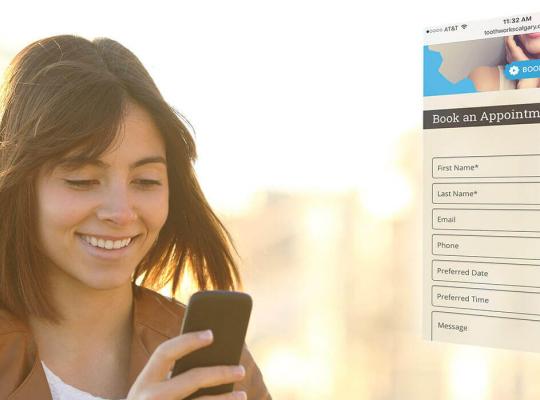Should Your Dental Office Charge No-Show Fees?

Dental professionals have a lot of responsibilities on their plates each day that require significant preparation. When patients cancel at the last minute or don't show up, all of this effort gets wasted, often at a financial cost to the practice. This problem isn't unusual in dentistry, where nearly 10% of patients opt out of scheduled visits annually.
To combat this issue, some practices have implemented a fee-based strategy to deter no-shows and sudden cancellations. However, do these charges have a beneficial or punitive effect? If you're on the fence about whether this is the right solution for a growing issue in your clinic, read on to learn more about how no-show fees could help or hurt your dental business.
Why Aren't Patients Showing Up?

Before determining if charging a no-show fee is right for your dental office, let's first explore why patients bail on appointments.
In most cases, it's psychological. Dental anxiety affects nearly 36% of the U.S. population and almost half of this percentage experiences extreme fear. It's hard to come to an appointment where you know someone will be fiddling around inside your mouth. So, when their appointment time arrives, they can't find the courage to follow through.
Other factors that lead to cancellations include common barriers like finances, transportation, education, and insurance. All of these elements are manageable with the right policies to address them. However, if you're hoping that a no-show charge will act as a panacea to all, you may be in for disappointment. While tagging on a $25 or even $75 fee will reduce your production loss, does it address why patients didn't make it to their appointments in the first place? Probably not.
The Good and Bad of No-Show Fees

Every policy implemented within your office has pros and cons, including no-show charges.
Even though it's perfectly reasonable to request a fee to recoup some of your loss when patients don't come in as scheduled, consider the benefits and drawbacks of doing so and the impact on your practice.
Pros
- Reinforces the value of your services and time
- Penalizing missed appointments will ensure patients needing care receive it
- Encourages a more proactive attitude from patients about their oral health
- Recoup some of your lost revenue
- Reminds patients to communicate schedule changes timeously
Cons
- Patients may not return because of the fee
- May cause tension between staff and patients
- Adds additional time to the collection process
- Not all insurers will cover missed appointment fees
- Doesn't address why patients are no-showing
How to Boost Appointment Attendance without a Fee

At the end of the day, no-show fees aren't about increasing revenue but encouraging patients to follow through with their bookings. But before you start including these charges in next month's billing, consider implementing the following best practices that are proven to reduce cancellations.
Be Upfront About No-Show Policies

If your office doesn't convey attendance expectations until a patient no-shows for the first time, this contributes to the problem. When onboarding new visitors, make sure your team verbally reviews your policies, including last-minute cancellations. Include a separate form in their records stating the definition of a no-show and the potential consequences if they violate this policy. Also, place signage around your lobby so patients know where your clinic stands on this issue.
Automate Your Appointment Reminders

We all live busy lives and can't always answer the phone. If your front desk still confirms upcoming appointments by directly calling patients, this creates the potential for missed visits.
Voice mails are easily forgotten, as are call-back requests, but sending out automated reminders via SMS and email can ensure your team reaches patients more effectively.
Plus, your clinic staff can send these messages with a few mouse clicks and get back to attending visitors in the lobby sooner.
When Weave dropped their calls, Adit answered Manual processes. Unreliable systems. Sound familiar? This practice was juggling too many tech issues behind the scenes. Then they found Adit. Read how they traded system crashes and paperwork chaos...
Download Case StudyMind Your Language
Any communications your office has with patients in the weeks and days leading up to a visit should sound assumptive at all times. Use language that conveys how your team looks forward to their arrival and assumes they won't cancel. Relying simply on a yes or no confirmation reply doesn't accomplish this type of communication, but confirming words do.
Underscore the Value of Your Dental Services

Your practice needs to communicate the value of oral healthcare to patients who may lack education in these matters. Create a sense of urgency that promotes demand for your services. By conveying the benefits and high demand for dental care, your patients are less likely to no-show and prioritize getting to their appointments.
Don't Give the Wrong Impression about Your No-Show Policy
Did you know that your front desk team might be contradicting your cancellation policies without realizing it? Empathy is a crucial interpersonal communication skill that dental professionals rely on to support patients. When someone calls in at the last minute to cancel their hygienist appointment, your team may speak phrases like "no problem" or "we understand." Without realizing it, these consoling phrases send a non-verbal cue that no-showing isn't that much of an inconvenience.
This doesn't mean your front desk shouldn't show concern for the patient's situation, but be mindful of what's said. Stick to language that recognizes their predicament without normalizing last-minute schedule changes.
Be Proactive to Prevent No-Shows

Charging fees won't come close to the lost revenue caused by no-shows. Whatever policies you implement should focus on the patient's situation and how that impacted their ability to come in for their appointment. Of course, don't be shy about having clearly stated rules regarding skipped visits. It's important to express your expectations about patient compliance along with any consequences your team may impose.
It's still important to recognize the role your clinic plays in ensuring patients come to their appointments on time, every time. Communication and education are essential ingredients to any effective no-show policy. Adit has created a practice management software solution that supports patient treatment compliance by providing your team with the necessary tools to communicate more effectively.
Our innovative platform takes a centralized approach to communication and helps clinics quickly and consistently remind and recall patients through automated SMS messaging, email, and direct calls. Couple this feature with our online scheduling integration and mobile app to increase patient access to your office on their terms, making it less likely they won't show up for their next visit.
Schedule your free demo of our intuitive software today and create a more effective no-show strategy to improve patient appointment attendance.
more about Adit?
Say goodbye to the hassle of using multiple tools. Adit centralizes your calls, texts, payments, reviews, and scheduling into one powerful dashboard. Simplify your operations and boost patient satisfaction today.
Schedule a DemoAngela is a former English teacher turned marketing content specialist. Over the past 10 years, she’s developed marketing strategies to forge enduring bonds between B2B, B2C and SaaS companies and their clients through holistic education, effective communication, and captivating storytelling that moves audiences to act.
Get a $25 Gift Card when you take a demo
Schedule a DemoGet a $50 Gift Card
when you take a demo
Looks like you're out of bounds!
Hey there! Your current location falls outside Adit's area of operation. If this is unexpected, try disabling your VPN and refresh your page. For further assistance or to book a live demo, connect with us at 832-225-8865.
February 21 Amazon Demo Promo
Terms and Conditions
Last Updated: February 21, 2026Offer ends February 24, 2026, and is limited to prospective customers who sign an annual agreement before February 28, 2026. Gift card will be emailed to the company owner or established representative within 4 weeks of signing the annual agreement. Offer may not be combined with any other offers and is limited to one (1) gift card per office. Offer is not available to current customers or to prospective customers or individuals that have participated in a Adit demo during the prior six (6) months. Recipient is responsible for all taxes and fees associated with receipt and/or use of the gift card as well as reporting the receipt of the gift card as required under applicable federal and state laws. Adit is not responsible for and will not replace the gift card if it is lost or damaged, is not used within any applicable timeframe, or is misused by the recipient. Adit is not responsible for any injury or damage to persons or property which may be caused, directly or indirectly, in whole or in part, from the recipient’s participation in the promotion or receipt or use of the gift card. Recipient agrees to indemnify, defend and hold harmless Adit from and against any and all claims, expenses, and liabilities (including reasonable attorney’s fees) arising out of or relating to a recipient’s participation in the promotion and/or recipient’s acceptance, use or misuse of the gift card. This offer is sponsored by Adit Communications, Inc. and is in no way sponsored, endorsed or administered by, or associated with Amazon.
Thank You!
We appreciate your interest! Adit AI will be calling you in the next few minutes!
Why Adit?
Cut your software bill by up to 60% when you merge everything your dental office needs to run under one roof.
Centralize Communications
- Phones & TeleMed
- Emails & eFax
- Texting & Reminders
- Call Tracking and more!
Streamline Operations
- Patient Forms
- Online Scheduling
- Payments
- Reviews and more!
Boost Production
- Performance Dashboards
- Morning Huddle
- Claims & Collections
- Patient Profiles
- Follow Up Lists
- Year Over Year Metrics
Acquire More Patients
- Digital Marketing
- Website Design
- SEO
- Google Ads
- Facebook Ads
when you sign up with Adit!
Sign up by filling out the form







